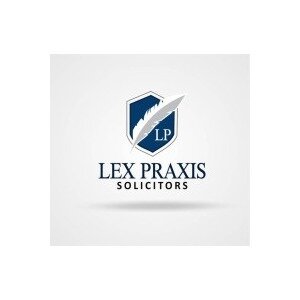Best New Business Formation Lawyers in Calabar
Share your needs with us, get contacted by law firms.
Free. Takes 2 min.
List of the best lawyers in Calabar, Nigeria
Nigeria New Business Formation Legal Questions answered by Lawyers
Browse our 2 legal questions about New Business Formation in Nigeria and read the lawyer answers, or ask your own questions for free.
- Timeline, Requirements, and Costs for Company Registration with the CAC
- How long will it take to get my company registered with the CAC, and what are the necessary requirements and costs?
-
Lawyer answer by GAVEL & GREY LEGAL PRACTITIONERS
The duration takes between 7-28 days. And as for requirement, it varies depending on the type of company you seek to register. the fees is usually determined by the share capital you seek to register your company with. for more...
Read full answer - I want to start upa disatch rider company i. Enugu. Courier a d logistics. Company
- What are the necessary law requirement and licensing to set up a dispatch rider business within Rnugu State
-
Lawyer answer by Highlaw Chambers
To establish a dispatch rider business in Enugu State, several key legal requirements must be met. Firstly, you need to register your business with the Corporate Affairs Commission (CAC) and obtain a Business Name Registration. Additionally, you will need to...
Read full answer
About New Business Formation Law in Calabar, Nigeria
New Business Formation in Calabar, Nigeria, involves a series of legal processes and statutory obligations. This includes, among other things, business registration, securing necessary permits and licenses, paying the required taxes, and ensuring compliance with employment laws. There are several categories of companies to choose from, such as a private limited company, public limited company, company guarantee, unlimited company, and incorporated trustee.
Why You May Need a Lawyer
The process of starting a new business in Calabar can be complex. Potential issues such as choosing the right business structure, understanding tax implications, navigating local zoning laws, and ensuring compliance with employment laws, present challenges. Hence, a lawyer's expertise in new business formation can help steer you clear legal pitfalls, while ensuring that your business adheres to all the necessary local, state, and national regulations.
Local Laws Overview
Local laws relevant to New Business Formation in Calabar include the Nigerian Companies and Allied Matters Act (CAMA), which governs the incorporation of businesses; the Personal Income Tax Act and Companies Income Tax Act, which regulate taxation; and local government by-laws, which govern aspects such as zoning and licensing. Non-compliance with these laws can result in penalties, which may have serious financial implications for your business.
Frequently Asked Questions
What is the first step in starting a business in Calabar, Nigeria?
The first crucial step is choosing the appropriate business structure as it affects your tax obligations, liability and other legal factors. Afterwards, the business can be registered with the Corporate Affairs Commission (CAC).
How long does it take to register a business in Calabar?
The duration for business registration can vary, but it typically takes around 2-3 weeks, providing all required documentation is in order. The exact length can be longer if corrections are needed in the submitted documents.
Do I need a local address to register a business in Calabar?
Yes, providing a local address is necessary when registering your business as this will serve as your official business address.
What types of tax will my business have to contend with?
Taxes you might encounter include Company Income Tax, Value Added Tax (VAT), and Personal Income Tax for employees. This would depend on the scale and nature of your business activities.
What happens if I fail to register my business?
Failure to register your business can result to inability to access government benefits for businesses and legal implications. It also gives your business a lack of authenticity and credibility in the eye of potential customers or clients.
Additional Resources
For more information, the Corporate Affairs Commission, the Federal Inland Revenue Service (FIRS), and the Nigerian Investment Promotion Commission (NIPC) provide helpful resources. The Calabar Chamber of Commerce and Industry can also be of assistance, particularly for on-the-ground support in dealing with local regulations.
Next Steps
If you require legal assistance in New Business Formation in Calabar, find a lawyer with local expertise and proven experience in helping business to understand and navigate the intricacies of Nigerian business law. It is important to conduct thorough due diligence before choosing a lawyer or law firm.
Lawzana helps you find the best lawyers and law firms in Calabar through a curated and pre-screened list of qualified legal professionals. Our platform offers rankings and detailed profiles of attorneys and law firms, allowing you to compare based on practice areas, including New Business Formation, experience, and client feedback.
Each profile includes a description of the firm's areas of practice, client reviews, team members and partners, year of establishment, spoken languages, office locations, contact information, social media presence, and any published articles or resources. Most firms on our platform speak English and are experienced in both local and international legal matters.
Get a quote from top-rated law firms in Calabar, Nigeria — quickly, securely, and without unnecessary hassle.
Disclaimer:
The information provided on this page is for general informational purposes only and does not constitute legal advice. While we strive to ensure the accuracy and relevance of the content, legal information may change over time, and interpretations of the law can vary. You should always consult with a qualified legal professional for advice specific to your situation.
We disclaim all liability for actions taken or not taken based on the content of this page. If you believe any information is incorrect or outdated, please contact us, and we will review and update it where appropriate.









